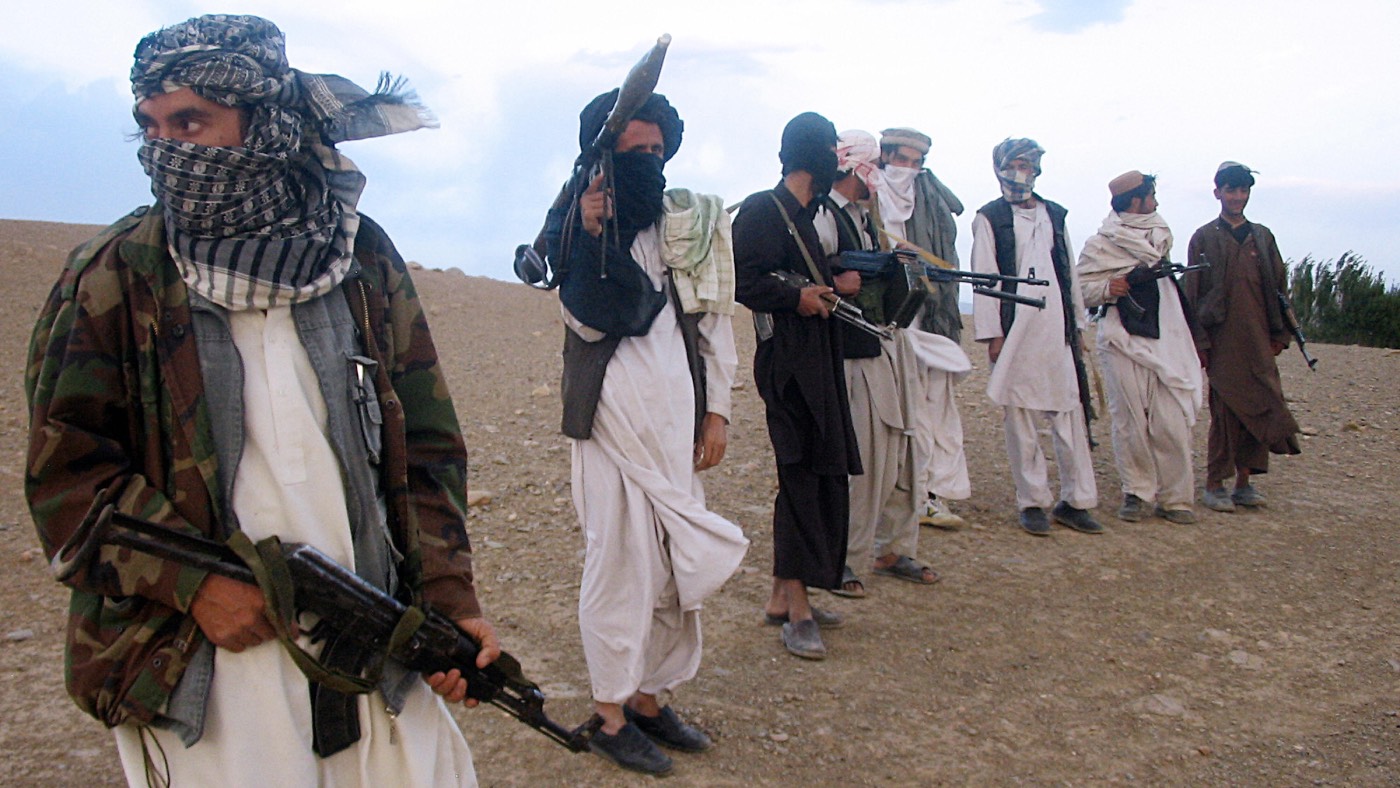Taliban overtakes Isis as world’s deadliest terror group
New research reveals near doubling of Taliban attacks in single year

A free daily email with the biggest news stories of the day – and the best features from TheWeek.com
You are now subscribed
Your newsletter sign-up was successful
The Taliban has overtaken Islamic State as the world’s most deadly terrorist group, a defence intelligence agency is claiming.
A new report from the London-based Jane’s Terrorism and Insurgency Centre (Jtic) says the number of Taliban attacks recorded in 2019 rose by 87.6% year-on-year and resulted in 4,617 “non-militant” fatalities - up from 2,980 in 2018.
By contrast, attacks by Isis declined by 18.4%, following a “substantial downturn in activity in Iraq and Syria”. And the number of non-militant deaths from Isis attacks fell to 2,381 - down by about 25% from 3,151 the previous year.
The Week
Escape your echo chamber. Get the facts behind the news, plus analysis from multiple perspectives.

Sign up for The Week's Free Newsletters
From our morning news briefing to a weekly Good News Newsletter, get the best of The Week delivered directly to your inbox.
From our morning news briefing to a weekly Good News Newsletter, get the best of The Week delivered directly to your inbox.
However, the report warns that Isis continues to pose a “significant threat” in West Africa and the Sahel - the stretch of semi-arid land south of the Sahara Desert from Mauritania and Senegal in the west to Sudan and Eritrea in the east.
Matthew Henman, head of Jtic, said: “While Islamic State activity in Iraq and Syria was largely reduced to a steady tempo of insurgent-style violence, in Nigeria, Cameroon, Niger and Burkina Faso in particular, the group continued to perpetrate mass-casualty violence.”
The publication of the data comes as the US begins its withdrawal from Afghanistan.
The Times says the findings will be an “embarrassment” to the Donald Trump administration, “which has already come under criticism over its peace deal with the Taliban”.
A free daily email with the biggest news stories of the day – and the best features from TheWeek.com
–––––––––––––––––––––––––––––––For a round-up of the most important stories from around the world - and a concise, refreshing and balanced take on the week’s news agenda - try The Week magazine. Get your first six issues for £6–––––––––––––––––––––––––––––––
Frank McKenzie, head of US forces in the Middle East, told a congressional committee on Monday that he had no confidence the Taliban would meet their commitments under the agreement.
“Nevertheless, the Pentagon announced that the first stage of the withdrawal was under way,” the newspaper continues.
The UK is also set to withdraw 330 of its 1,100 regular personnel stationed in Afghanistan.
Isis traces its roots back to 2004 and Jordanian jihadist Abu Musab al-Zarqawi, who pledged allegiance to Osama Bin Laden and formed al-Qa’eda in Iraq (Aqi).
Following Zarqawi’s death, in 2006, Aqi created an umbrella organisation, Islamic State in Iraq (Isi), an umbrella group that later merged with jihadist forces in Syria to become Islamic State in Iraq and Syria Levant (Isis).
Meanwhile, the Taliban “emerged in the early 1990s in northern Pakistan following the withdrawal of Soviet troops from Afghanistan”, according to the BBC.
By 1998, the hard-line Islamist movement were in control of almost 90% of Afghanistan.
The Taliban were removed from power by a US-led invasion in 2001, but “has gradually regained its strength and now controls and influences more territory than at any point since that time”, the broadcaster says.
-
 Political cartoons for February 20
Political cartoons for February 20Cartoons Friday’s political cartoons include just the ice, winter games, and more
-
 Sepsis ‘breakthrough’: the world’s first targeted treatment?
Sepsis ‘breakthrough’: the world’s first targeted treatment?The Explainer New drug could reverse effects of sepsis, rather than trying to treat infection with antibiotics
-
 James Van Der Beek obituary: fresh-faced Dawson’s Creek star
James Van Der Beek obituary: fresh-faced Dawson’s Creek starIn The Spotlight Van Der Beek fronted one of the most successful teen dramas of the 90s – but his Dawson fame proved a double-edged sword
-
 Epstein files topple law CEO, roil UK government
Epstein files topple law CEO, roil UK governmentSpeed Read Peter Mandelson, Britain’s former ambassador to the US, is caught up in the scandal
-
 Iran and US prepare to meet after skirmishes
Iran and US prepare to meet after skirmishesSpeed Read The incident comes amid heightened tensions in the Middle East
-
 Israel retrieves final hostage’s body from Gaza
Israel retrieves final hostage’s body from GazaSpeed Read The 24-year-old police officer was killed during the initial Hamas attack
-
 China’s Xi targets top general in growing purge
China’s Xi targets top general in growing purgeSpeed Read Zhang Youxia is being investigated over ‘grave violations’ of the law
-
 Panama and Canada are negotiating over a crucial copper mine
Panama and Canada are negotiating over a crucial copper mineIn the Spotlight Panama is set to make a final decision on the mine this summer
-
 Why Greenland’s natural resources are nearly impossible to mine
Why Greenland’s natural resources are nearly impossible to mineThe Explainer The country’s natural landscape makes the task extremely difficult
-
 Iran cuts internet as protests escalate
Iran cuts internet as protests escalateSpeed Reada Government buildings across the country have been set on fire
-
 US nabs ‘shadow’ tanker claimed by Russia
US nabs ‘shadow’ tanker claimed by RussiaSpeed Read The ship was one of two vessels seized by the US military